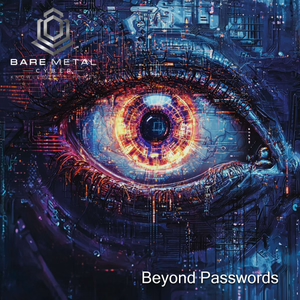
Off the Record, On the Radar: Why Personal Comms Keep Haunting Government Cybersecurity
04/22/25 • 28 min
In this podcast episode, I explore the persistent cybersecurity issue involving U.S. government officials using personal communication methods—like private emails and encrypted messaging apps—for official business. Drawing from notable examples across multiple administrations, from Bush-era email scandals and Obama's private server controversy to recent messaging app incidents under Trump, I highlight the systemic nature of these vulnerabilities. My analysis emphasizes that this issue is not partisan but reflects enduring gaps in cybersecurity practices and awareness.
I also discuss the underlying causes of this ongoing challenge and provide actionable recommendations from a cybersecurity professional’s perspective. These recommendations include targeted cybersecurity training, improved communication infrastructure, strict enforcement of security protocols, and a necessary shift in organizational culture to prioritize secure communication. Join me as we move beyond politics and address how government agencies can better protect sensitive national security information in an increasingly digital and interconnected world.
In this podcast episode, I explore the persistent cybersecurity issue involving U.S. government officials using personal communication methods—like private emails and encrypted messaging apps—for official business. Drawing from notable examples across multiple administrations, from Bush-era email scandals and Obama's private server controversy to recent messaging app incidents under Trump, I highlight the systemic nature of these vulnerabilities. My analysis emphasizes that this issue is not partisan but reflects enduring gaps in cybersecurity practices and awareness.
I also discuss the underlying causes of this ongoing challenge and provide actionable recommendations from a cybersecurity professional’s perspective. These recommendations include targeted cybersecurity training, improved communication infrastructure, strict enforcement of security protocols, and a necessary shift in organizational culture to prioritize secure communication. Join me as we move beyond politics and address how government agencies can better protect sensitive national security information in an increasingly digital and interconnected world.
Previous Episode

Cyber Illusions: How Security Teams Trick and Track Attackers
In this episode, I dive into the fascinating world of cyber deception—where security teams use honeypots, honeytokens, and other digital traps to lure and track attackers. Instead of simply reacting to threats, deception shifts the balance, forcing cybercriminals to navigate a battlefield filled with fake credentials, decoy files, and misleading network services. I break down how these techniques work, why they’re so effective, and how they integrate with modern security strategies like zero-trust and threat intelligence. Whether it’s a research honeypot designed to study adversaries or an AI-powered deception system that adapts in real time, deception technologies are changing the way we defend against cyber threats.
Throughout the episode, I also discuss the real challenges of deploying deception, from maintaining realism to ensuring attackers don’t exploit decoys for their own gain. I cover practical ways to integrate deception with existing security tools, measure its effectiveness, and avoid legal or ethical pitfalls. As cyber threats grow more sophisticated, deception gives defenders the ability to mislead, monitor, and disrupt adversaries before they reach critical systems. Tune in to learn how deception technology isn’t just about fooling hackers—it’s about taking control of the battlefield.
Next Episode

Beyond Passwords: The Future of Secure Identity Management
In this episode, I take a deep dive into the future of identity management and why passwordless authentication is gaining traction. Passwords have long been a security liability, fueling phishing attacks, credential breaches, and user frustration. By replacing them with biometrics, security keys, and adaptive authentication, organizations can enhance security while improving user experience. But going passwordless isn’t just about convenience—it’s about eliminating one of the biggest attack vectors in cybersecurity. I break down how this shift strengthens multi-factor authentication, reduces credential theft, and even helps organizations meet regulatory compliance.
Of course, passwordless authentication comes with its own challenges. I explore the complexities of implementation, privacy concerns around biometrics, and the risks tied to device dependency. I also look beyond passwordless to the next frontier of identity management, from decentralized identity to post-quantum authentication. Whether you're a cybersecurity professional, business leader, or just someone interested in how we secure digital identities, this episode unpacks the key issues, benefits, and potential roadblocks in the journey beyond passwords.
If you like this episode you’ll love
Episode Comments
Generate a badge
Get a badge for your website that links back to this episode
<a href="https://goodpods.com/podcasts/bare-metal-cyber-627758/off-the-record-on-the-radar-why-personal-comms-keep-haunting-governmen-89804007"> <img src="https://storage.googleapis.com/goodpods-images-bucket/badges/generic-badge-1.svg" alt="listen to off the record, on the radar: why personal comms keep haunting government cybersecurity on goodpods" style="width: 225px" /> </a>
Copy




